What are the Executive Functioning skills?
Affiliate and Referral links are used below to promote products I love and recommend. I receive a commission on any purchases made through these links. Please see my disclosure policy for more details. As an Amazon Associate, I earn from qualifying purchases.
Executive Function skills seem to be the new “buzz word” in child development. What exactly are the executive functioning skills? How do you know if your child struggles with executive function? These are the questions we are going to answer today.
What are the Executive Functioning Skills?
Before we get too far into Executive Function, we need to understand what it means.
This is a formal description: “The executive functions are a set of processes that all have to do with managing oneself and one's resources in order to achieve a goal. It is an umbrella term for the neurologically-based skills involving mental control and self-regulation.” (Reference).
Executive function is the ability to organize and manage our thoughts, actions, and emotions in order to initiate, sustain, and complete a task.
It also helps us to plan, manage and organize time.
You will find between 3 and 8 skills included with Executive Function. For the sake of this discussion, we are going to talk about the 3 main skills first and then break it down into the remaining 5 skills.
There are 3 main skills that are included under the umbrella of Executive Function.
These include:
– Working Memory (being able to keep information in mind for future reference, such as reading a passage and then answering questions about that passage).
– Cognitive Flexibility (also known as Flexible Thinking. Being able to come up and think of multiple ways of doing something).
– Inhibitory Control (or self-control, being able to ignore distractions and resist temptations).
In short, Executive Function is like the CEO of your brain.
How does Executive Functioning Work?
Good executive function skills depend on healthy and formed frontal lobes (right and left), located in the top front part of the brain, right behind your forehead.
The frontal lobes control over many body functions. This part of the brain also continues to develop over adolescents into adulthood.
Some of the functions of the frontal lobes include:
– managing body movement (motor function)
– emotions
– attention
– motivation
And other thinking functions such as:
– decision-making
– judgment
– abstract reasoning
– planning and completing tasks
– working memory (storing and using details to function)
– meeting goals.
To understand this even more, here are 6 steps your brain typically works through with good executive function skills:
1. Analyze a task. Figure out what needs to be done.
2. Plan how to handle the task.
3. Get organized. Break down the plan into a series of steps.
4. Figure out how much time is needed to carry out the plan, and set aside the time.
5. Make adjustments as needed
6. Finish the task in the time allotted.
If executive functioning is working well and the task is fairly simple, the brain may go through these steps in a matter of seconds. If your child has weak executive skills, performing even a simple task can be challenging.
Remembering a specific word may be as big a struggle as planning tomorrow’s schedule.
Executive Functioning Skills and Your Child/Student
These eight executive function skills are needed by our kids (and us) every day.
– Working Memory
– Flexible Thinking
– Organization
– Task Initiation
– Impulse Control
– Emotional Control
– Self-Monitoring
– Planning and Prioritization
We are going to take a look at each of these and what a dysfunctional executive function system may look like in the next sections of this post.
A child who struggles with this skills may have problems with the following:
– Planning projects
– Estimating how long it will take them to complete a project
– Telling stories (verbally or written)
– Memorizing
– Starting activities or tasks
– Remembering
Children who have ADD/ADHD, dyslexia, depression or learning disabilities often have weak executive function skills.
Strategies for Working Memory
This skill allows you to remember key pieces of information for use later on.
A child struggling with this skill will often forget number sequencing or directions even if a teacher or parent just explained the steps.
Strategies to help with this skill include:
– Have your child teach you (practice explaining a skill or activity helps them to remember all the steps needed to complete the task).
– Work on visualization skills (have your child create a visual picture in their head of what they just heard. For example, if you read a story have the children visualize the story in their heads as you read it).
– Play games that use visual memory
– Play card games (Crazy Eights, Uno, Go Fish, etc).
– Practice active reading strategies (taking notes, using sticky notes, asking questions as they are reading etc).
– Use Multi-Sensory Strategies for teaching
– Help make connections (visually or verbally)
Strategies for Flexible Thinking
Flexible thinking allows your child to think of new ways to do something or work through something.
Flexible thinking is needed in real-life learning experiences, Math, Reading, Writing, Language Learning, and studying.
A child who struggles with this skill may seem rigid and have difficulty completing a task in a different way than they are used to.
Strategies to help include:
– Play “What's this” Show your child an ordinary object and see how many things they can imagine it is.
– Make up new rules for a game.
– Find more than one way to do activities, games, tasks etc.
– Teach self-talk schools (talking through a scenario, thinking out loud while problem-solving etc).
Strategies for Organization
This skill helps your child to keep track of things and organize things so they can find them again easily.
A child who struggles with this skill often has problems finding items, retrieving them or storing them in an effective way.
Some strategies for this skill include:
– Keep a family, classroom, or student calendar.
– Introduce checklists.
– Get ready for something the night before (laying out clothes, getting backpack ready for school etc).
– Use containers and closet organizers.
– Establish a homework routine (or classroom routine)
– Create a homework, school room supply box.
– Assign tasks or chores that include sorting and organizing items.
– Clean out the clutter.
– Use memory aids (such as a visual schedule or checklist).
– Label and color coding.
Strategies for Task Initiation
This skill allows your child to begin a task in a timely way and not stalling or procrastinating.
A child who struggles with this skill will struggle with starting a task or a project. Once they get started they are able to complete it, they just have no clue how to get started.
Some strategies for this skill include:
– Using a timer (visual timers work even better).
– Make a goal journal.
– Break down the task into mini-steps or actions (particularly if anxiety is involved because of perfectionism etc).
– Visual schedules
– Time-slot schedule (specific times each day for specific tasks such as homework).
– Eliminate distractions (auditory and visual).
– Breathing exercises and self-talk (particularly for anxiety).
– Avoid saying things like “Just try your best.” To a child who struggles with perfectionism, they hear “Only your best will do.”
Strategies for Impulse Control
This skill allows your child to think through and process information before acting on it.
A child who struggles with this skill will often react before thinking through a problem. They may often say inappropriate things before thinking if they should say that or not. Or they may engage in risky behavior.
All children struggle with this skill in age-appropriate ways. It's when this skill does not develop as your child grows that there is cause for concern (i.e. adulthood).
Strategies for this skill include:
– Have very clear, enforceable expectations (at home, in the classroom etc).
– Predictable consequences when those expectations or rules are not followed.
– Use visual reminders.
– Encourage appropriate behavior.
– Give 5-minute, 2-minute warnings etc. before transitions to a new activity.
– Anticipate potential explosive situations and explain ahead of time what will happen and what is going on.
Strategies for Emotional Control
This skill allows your child to control their emotions and reactions and adapt based on the environment and circumstances.
A child who struggles with this skill often reacts negatively or strongly to criticism or struggles to regroup when negative things occur. They may also overreact to a situation.
Strategies for this skill include:
– Model healthy emotional-health management.
– Avoid problem situations (if possible)
– Give the child a plan when heading into a problem situation.
– Use and write social stories.
– Give and practice coping strategies.
– Make sure your child gets enough sleep.
– Read books on emotional control.
– Play games that practice self-control (i.e. Red light, green light)
– Calming techniques (deep breathing, quiet space/sensory room).
Strategies for Self-Monitoring
For this skill, a child is able to understand and know what they are supposed to be doing and evaluate how they are doing. This allows for the student to change their behavior in order to reach the desired outcome.
Children who struggle with this skill often shocked or upset by bad grades or negative feedback. They don't realize they need to change their behavior in order to reach the desired result (i.e. studying for a test, or finishing a project on time).
Some strategies for this skill include:
– Setting the expectations for/with the child/student.
– Using visual checklists or written checklists.
– Using visual cues or reminders to self-monitor
– Teach self-evaluation skills such as “Am I (insert desired behavior here)?”
Strategies for Planning and Prioritization
This skill allows a child know what needs to be done in order to complete a task, whether that task is for daily function or for a personal goal.
They are able to plan out what steps need to be taken and prioritize which ones to do first in order to successfully complete the task or activity.
Planning means they are able to mentally or visually map out a project (or day/week) and figure out what needs to be done and when.
Prioritizing means they are able to figure out and problem solve which activities need to be done first. This includes every-day functional activities or personal goals.
A child who struggles with this skill often has difficulty figuring out which part of an activity or task should be done first. They will also procrastinate throughout the day, trying to wait until the last possible minute to begin a task.
Some strategies for this skill include:
– Make a to-do list or checklist of tasks that need to be completed for the day
– Use calendars and schedules (visual schedules can be helpful too)
– Use a timer
– Break down the task into smaller steps or pieces
– Eliminate distractions
– Tell someone else the plan (buddy system)
Join Our Mailing List and get a free gift: Executive Function Printable Download
Subscribe to Growing Hands-On Kids for weekly newsletter activity tips and ideas, just like this one. You'll also be the first to know about new printables, resources, and product recommendations.
As a free gift, I'll send you the executive function printable download!
By downloading this free printable, you are agreeing with my site's terms of use and privacy policy as detailed here.
If you have already subscribed, don't worry, you won't be subscribing again. By entering your email below, this lets my email provider know which printable to send you. You will not receive duplicate emails from me.
References:
Task Initiation Executive Functioning Strategies – The OT Toolbox
8 Working Memory Boosters – Understood
Self-Regulation and Task Initiation Strategies – Brain Balance
Keeping Kids Accountable – ADDitude
How to Teach Kids Impulse Control – The OT Toolbox
Teaching Self-Control: Evidence-Based Tips – Parenting Science
Understanding Your Child's Trouble with Impulsivity – Understood
8 Tips to Help your Child Grain Control of His/Her Emotions – North Shore Pediatric Therapy
Emotional Control for Kids – ADDitude
5 Steps to Help Kids Learn to Control Their Emotions – Psychology Today
Three Strategies for Teaching Children Self-Control – PBS Parents
Self-Monitoring Strategies for Students with ADHD – Study
For more resources like this one, see the links below.

Heather Greutman, COTA
Heather Greutman is a Certified Occupational Therapy Assistant with experience in school-based OT services for preschool through high school. She uses her background to share child development tips, tools, and strategies for parents, educators, and therapists. She is the author of many ebooks including The Basics of Fine Motor Skills, and Basics of Pre-Writing Skills, and co-author of Sensory Processing Explained: A Handbook for Parents and Educators.
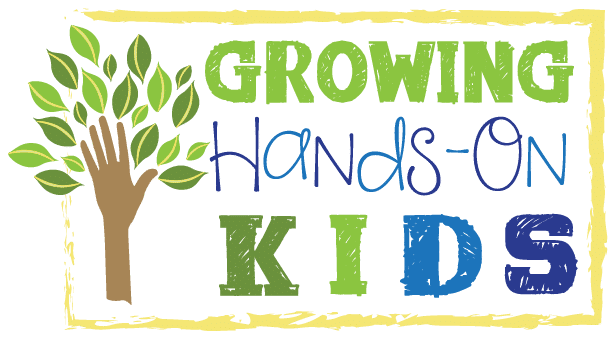
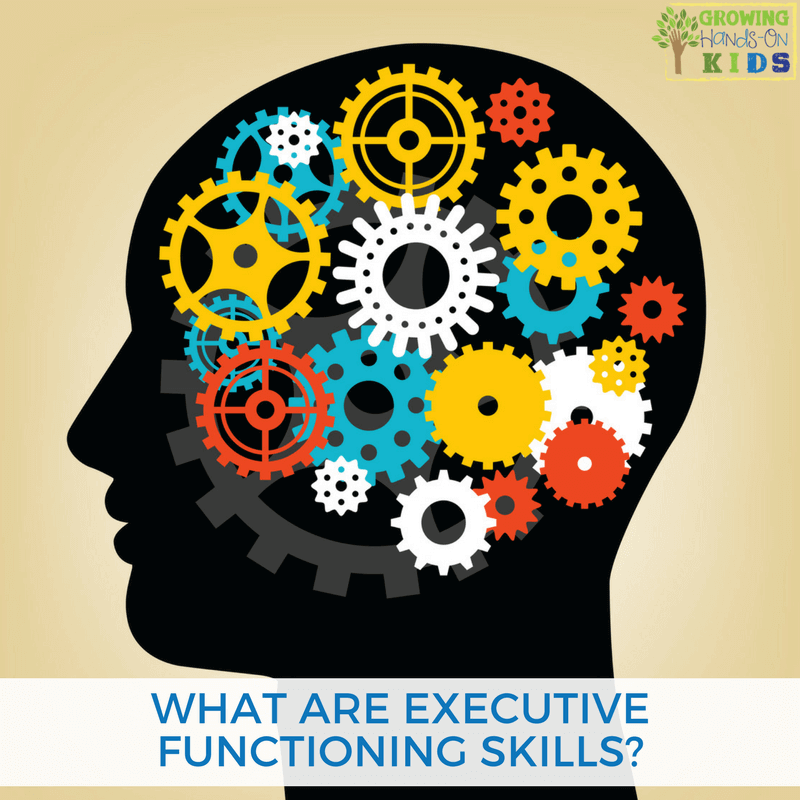
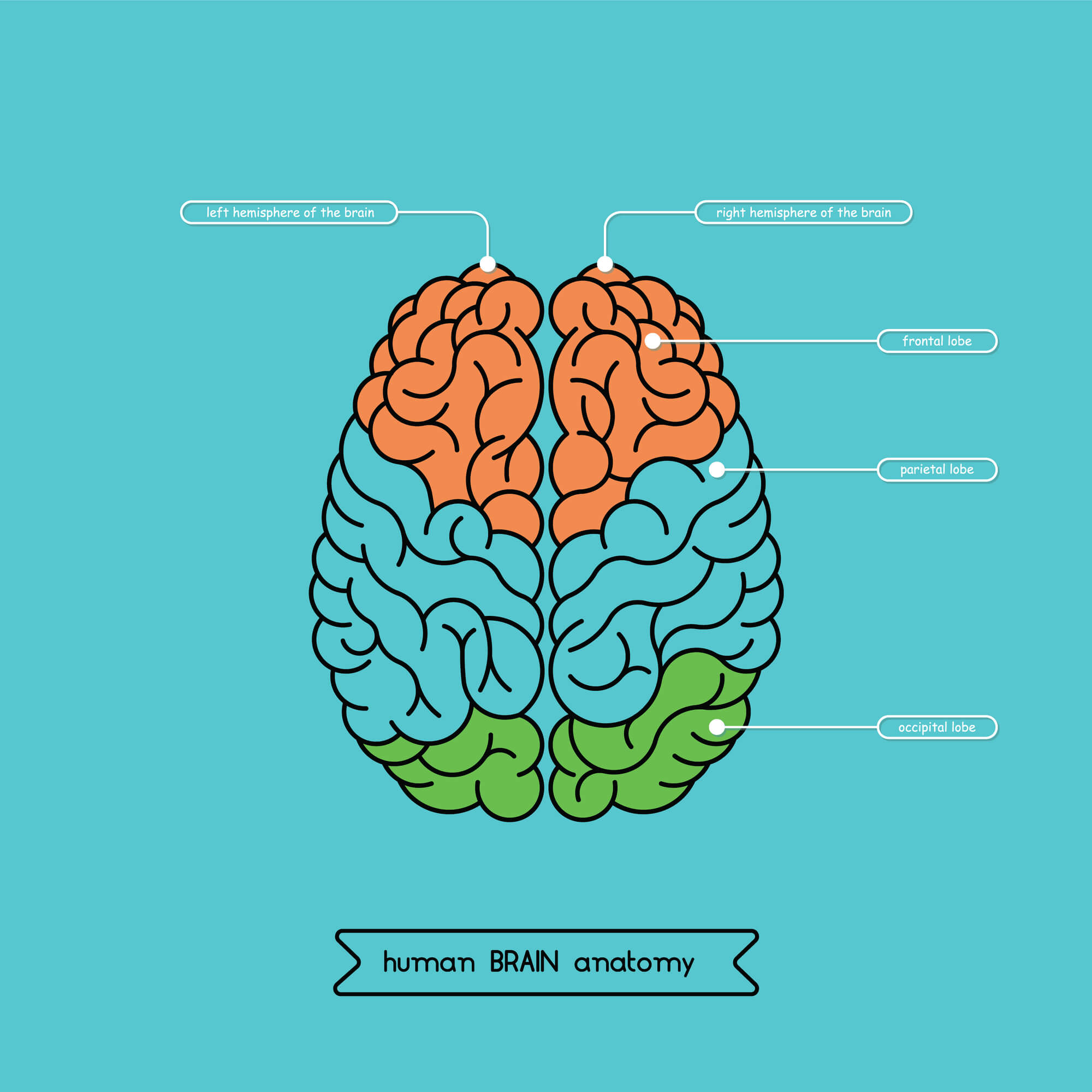
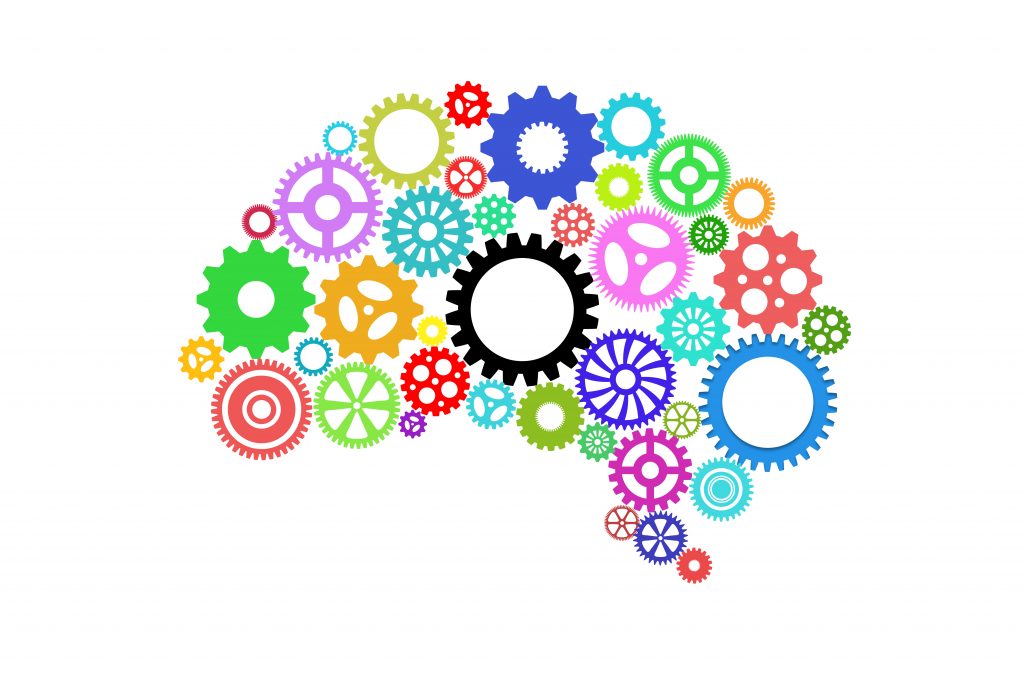
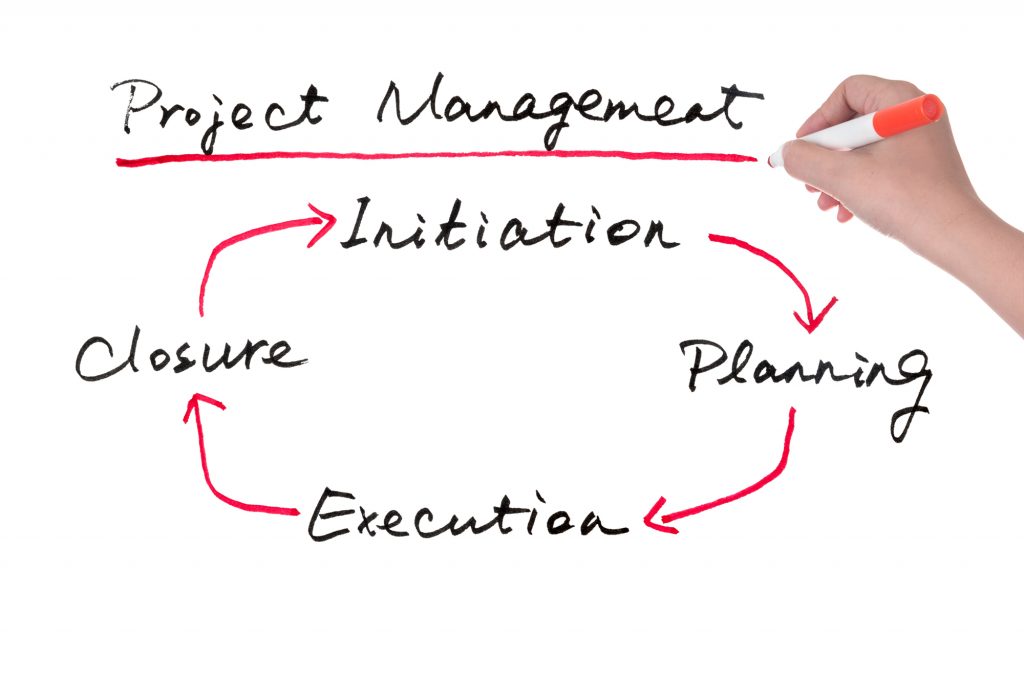

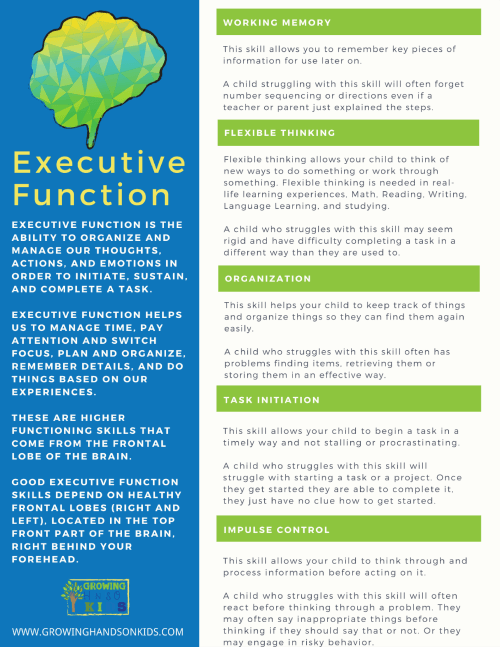
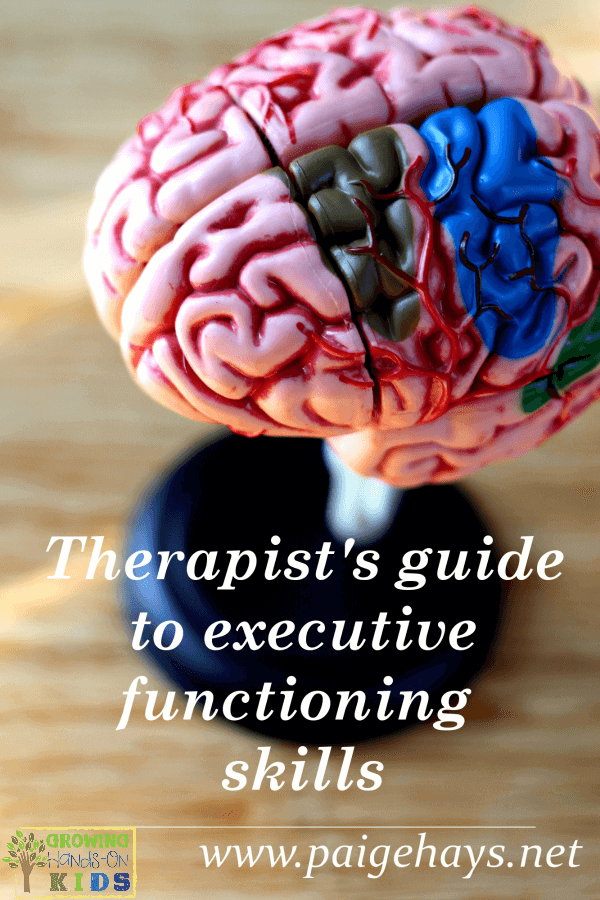
Hi,
would you be able to send me your Executive Functioning Skills printable download. I would like to include this information with my colleagues (school psychologist).
Thank you.
Hi Evi, There is a box in the post above that you can get the printable from. It will send it directly to your email.
“Children who have ADD/ADHD, dyslexia, depression or learning disabilities often have weak executive function skills.”
I think you should also include in this list children who have experienced trauma.
Research has shown that children who have experienced trauma, especially those who have been victims of complex trauma (read: chronic), have difficulties with Executive Functioning. This is something teachers and caregivers need to learn about and understand as Executive Functioning skills are frequently seriously compromised, delayed or even in some (rare) cases not likely to develop.
That is an excellent point Linda, thanks for bringing it up.
Hi, you will find the free download at the bottom of the post, just enter your email address and click the green button and you’ll get it sent to your computer.
i can just say superb! superb!! its a big help reading such articles.i feel blessed to be a part of your mail..
Thank youuuu…
Regards
Meeta
As am elementary behavior intervention specialist, I love this. I just shared I’m twitter and will refer to this in the future when sharing strategies with teachers. Thank you for synthesizing all of this information into one source%